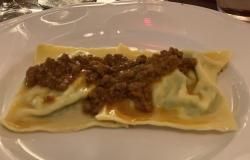There were 208 health alerts notified in our country between January and the beginning of June
Food Security: +75% alarms in 2024
from foreign foods, that’s more than one alert a day
Serious health risks due to contamination by heavy metals, pesticides beyond limits and bacteria
In 2024, more than one food alarm broke out per day linked to food imported into Italy from abroad, an increase of 75% compared to the same period in 2023, including products contaminated with heavy metals, pesticides beyond the limits, substances banned in Europe or bacteria.
This is what emerges from the Coldiretti analysis of data from the Rasff, the European rapid alert system, relating to the current year released on the occasion of the Food Safety Day announced by the UN on 7 June.
The objective is to increase awareness of the importance that the health safety of foods of all kinds has for protecting the health of the entire population.
There were 208 health alerts notified in our country between January and the beginning of June 2024. Of these, almost a quarter came from China, which is at the top of the list of countries from which the most contaminated foods arrive, ahead of Spain (mainly for fish products such as tuna with mercury residues above the limits) and Turkey (in particular for aflatoxins in pistachios, a problem that also concerns Iran).
The latest arrivals of foreign products are precisely from China and Turkey on which Coldiretti has turned the spotlight on the news with two raids by farmers at the port of Bari and Salerno to defend the health of citizens, a battle that started from Brenner with a mobilization of over 10 thousand producers from all over Italy.
Among the harmful products, they range from Bangladeshi beans with Chlorpyrifos, a substance banned in the EU which is also found in basmati rice from Pakistan, to Indian octopus and cadmium-laced Albanian frozen cuttlefish. But there are also Spanish tuna with mercury, Portuguese oysters with norovirus, Hungarian duck meat with salmonella, just to name a few.
Unfair competition and child labour. Added to the health risks for citizens is the problem of unfair competition to the detriment of Italian and European farmers since the EU continues to allow the entry of products that do not respect the same rules in terms of food safety and respect for workers’ rights and environmental protection. Just think of the use of pesticides banned for decades in our continent.
A quarter of those used in the United States are banned in the EU and the percentages rise if South American countries are taken into account, according to the Divulga Study Center.
But there are also many food products that end up on our tables every day accused of being cultivated and obtained thanks to the exploitation of children, from South America to Asia to neighboring Turkey, according to Coldiretti’s analysis of data from the US Department of Labor. They range from bananas from Brazil to Burmese rice, from Turkish hazelnuts to Mexican beans, from Chinese tomatoes to strawberries from Argentina and Thai shrimp.
“We need the principle of reciprocity of rules. Hence Coldiretti’s request to affirm the principle of reciprocity in Europe, i.e. the same rules that are the same for all starting from the production factors, and of transparency for consumers, with the introduction of mandatory origin labeling on all food products on the market in the EU. But to prevent the same foreign products from even being passed off as Italian, it is also necessary to modify the customs code on the origin of foods, which today allows a product to become “made in Italy” thanks to the principle of final substantial transformation”, stated the President Coldiretti Alessandria Mauro Bianco.
“There are records to be defended in the Italian agri-food chain in terms of quality and safety, as also confirmed by the latest EFSA report according to which foods and drinks imported into Italy are 5 times more dangerous than those Made in Italy with the number of foreign agri-food products with the presence of irregular chemical residues which was equal to 2.6% compared to just 0.5% of national ones”, added the Director of Coldiretti Alessandria Roberto Bianco.
I like:
I like Loading…




